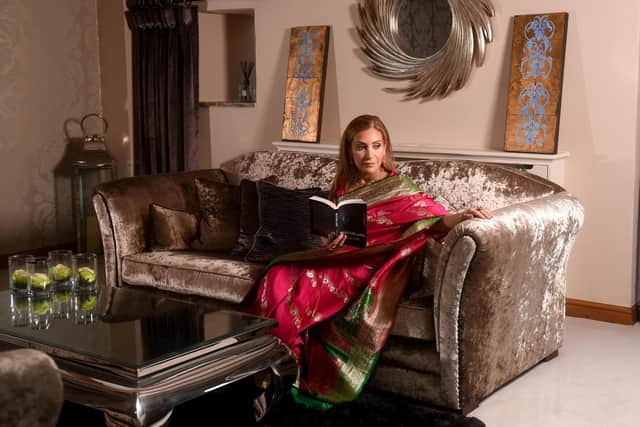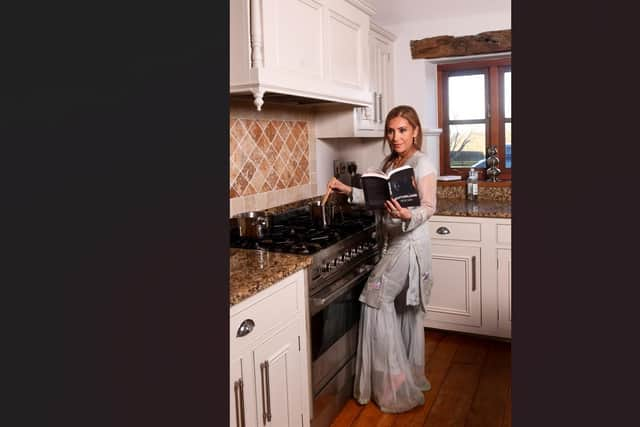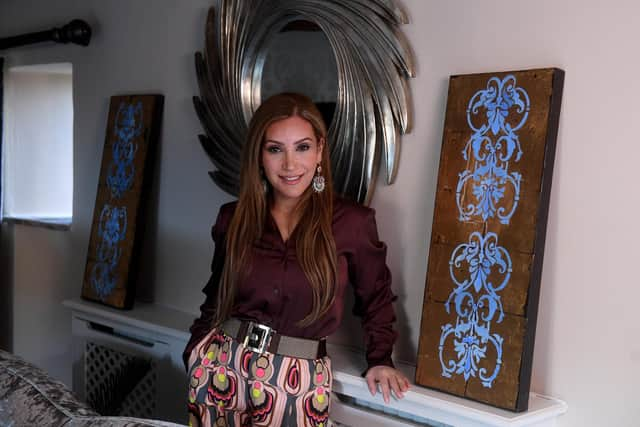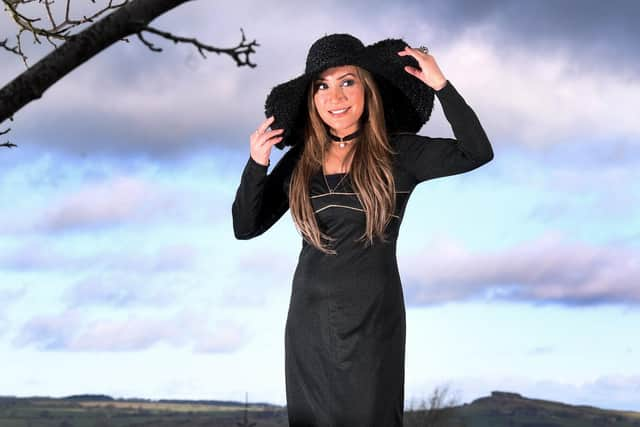Leeds author Freda Shafi talks about her novel Suitorland and the fashionable Yorkshire It girls of the 1970s
The Seventies is the decade that style forgot, or so say the minimalists. The jury is also still out for those who grew up in the 1970s, and have boxes of fading photographs in which they are wearing bell-bottoms and crocheted ponchos, flared skirts, cheesecloth shirts, massive neck ties and swirls of vivid orange and yellow (with pink, and sometimes brown).
But 1970s’ fashion itself refuses to fade. In fact, it has proved that it is much, much more than the sum of its (sometimes alarming) parts. It has stayed with us, and its eclecticism, its unapologetic celebration of bold colour and pattern, of print, crafting and diverse cultures, continues to surprise us and resonate with us as it informs trends of today.
Advertisement
Hide AdAdvertisement
Hide Ad“There has been an element of the 1970s in every decade that I have lived through, whether it be the flared jeans, oversized collars or the appropriation of East meets West clothes and fabrics,” says author Freda Shafi.


Freda, 52, originally from Shipley, is an avowed fan of Seventies’ fashion and has collected a wardrobe of clothes from, and inspired by, the era. Some reflect her own South Asian heritage, such as a striking pale blue kurta (tunic dress) and matching gharara, trousers that are ruched and flared from the knee. “I think the ra-ra skirt of the ‘70s was modelled from the gharara, very much a South Asian thing of the 1970s,” she says. “It was very much a wedding outfit. These flared trousers with elaborate embroidery are coming back on the wedding scene now.”
In the 1970s, sari blouses and the kurta tunics might be worn over jeans “This is what my eldest sister Najma often did,” Freda says. “She was and still is my idol, my inspiration.
“I think that has never really been explored - the way that British fashion was influenced by the migrants in the 1970s. Not just South Asian – there was also an influx of other cultures and references, from the Eastern bloc, Europe, the West Indies and South East Asia.”
Advertisement
Hide AdAdvertisement
Hide AdFreda revisits the styles and attitudes of the 1970s in her fictional debut novel Suitorland, written during lockdown, initially as a screenplay for a drama series (for which it is still being optioned).


Set in Bradford, it follows Farrah and her three rebellious, super-stylish sisters, known throughout their community as Yorkshire ‘It’ girls, to the dismay of their Punjabi mother. As well as fashion, the novel is peppered with recipes. Farrah cooks elaborate banquets for the many suitors who visit the family home to meet her elder sisters. The novel’s depiction of these introductory set-ups, or rishtays, has some similarities with first meetings that still happen today in the UK in some households of South Asian heritage. Freda says: “From what I see and hear, much has changed and progressed for the better, but sadly much has also regressed, and that worries me.
“I am being approached by young women from South Asian backgrounds who want me to speak up about certain themes that they feel important to address, around women and the patriarchy.”
Chapter Four of the novel, called Yorkshire-stanis, explores the fusion, and sometimes the confusion, felt by the children of first-generation migrants. Yorkshire-stani, it explains, is “a hybrid that combines East and West, pertains to those born in Yorkshire in the late 1960s and ‘70s. A most unique blend that combines Yorkshire Grit and Pakistani hot-headedness”.
Advertisement
Hide AdAdvertisement
Hide AdFreda says: “I, like the characters in the book, adopted a very British, very Yorkshire, culture. That doesn’t mean we didn’t embrace our cultural values being Pakistani - the two worked hand-in-hand. For me, I’m a Yorkshire girl through and through, born and bred.”


Misinformation and stigma still surround the influx of communities from the Indian subcontinent. “The truth is that they were recruited by the very wealthy mill owners of the worsted and other industries in Yorkshire and other counties,” she says. “My parents were from the city of Lahore, in Pakistan, and they had beautiful lives there, but they left all that behind.”
Sign up for our Yorkshire Heritage newsletter here
After school, Freda studied for a Fine Arts degree at the University of Leeds. She won an MA scholarship to Central Saint Martins and still works as an artist, to commission, specialising in creating pieces using galvanised steel, as well as copper, silver and gold leaf.
In 2007, Freda’s husband was invited to fill a skills gap for dentists in Australia and so they moved there, first to Queensland, then Melbourne Victoria. Their two children were born there and they lived a seemingly idyllic life in a beautiful house by the waterside.


Advertisement
Hide AdAdvertisement
Hide AdAt first, Freda felt lost. Then, one day, she opened the doors of her glass house and began frying onions, garlic and ginger to make a curry from scratch - a deliciously unfamiliar aroma to many of her neighbours. “I was encouraged to share my recipes, and that is where Spice it Up, my blog, was born,” she says.
Freda and family returned to the UK in 2017, and now live in Leeds. She continues to work as a food writer, stylist and cook (including creating eight-course Indian banquets as a guest chef at Harvey Nichols and elsewhere).
She intends to continue writing fiction, too, and has an idea bubbling for her second novel. Suitorland has been well received, charting at no 77 in Amazon’s top books list (out of 32 million) and is also charting high in feminist categories.
Read all about the John Lewis x Smart Works Fashion & Fizz in Leeds
Advertisement
Hide AdAdvertisement
Hide Ad“I didn’t necessarily set out to be a crusader, but I do feel almost impelled to talk about the fact that my generation broke through a lot of glass ceilings in order to open an easier pathway for this next one,” she says.
“A very close friend told me ‘don’t ever hide your light under a bushel’. I believe that too, especially when it comes to challenging the status quo, the boundaries and the shackles that keep women subjugated. I’ll happily keep banging that drum.”
*Suitorland is published by Fisher King Publishing. Follow Freda on Instagram @fredashafi_spiceitup
Comment Guidelines
National World encourages reader discussion on our stories. User feedback, insights and back-and-forth exchanges add a rich layer of context to reporting. Please review our Community Guidelines before commenting.
